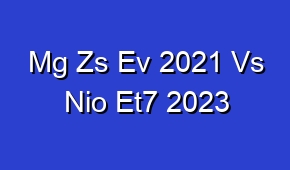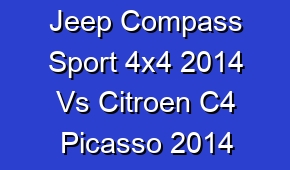Budget-Friendly EVs: Nissan Leaf vs. Tesla Comparison

Compare the budget-friendly electric vehicles, Nissan Leaf and Tesla, to find the perfect eco-friendly ride for you. Discover their features, performance, and affordability in this comprehensive comparison.
When it comes to budget-friendly EVs, the Nissan Leaf and Tesla are two popular options to consider. Both Nissan Leaf and Tesla offer electric vehicles that are not only environmentally friendly but also cost-effective in the long run. The Nissan Leaf is known for its affordability, making it a great choice for those looking for an economical electric car. On the other hand, Tesla offers a range of models, including the Tesla Model 3, which is considered more luxurious but still offers competitive pricing. Comparing these two options, it’s important to consider factors such as range, charging infrastructure, and overall performance. While the Nissan Leaf may have a lower price point, Tesla vehicles often offer longer ranges and a more extensive charging network. Ultimately, the decision between these two budget-friendly EVs will depend on individual preferences and priorities.
| Budget-friendly EVs: Comparing the Nissan Leaf and Tesla for cost-effective electric vehicles. |
| The Nissan Leaf offers a more affordable option for those on a budget. |
| The Tesla may have a higher price tag, but it offers superior performance and luxury. |
| When it comes to range, the Tesla surpasses the Nissan Leaf with its longer battery life. |
| The Nissan Leaf is a practical choice for daily commuting with its decent range. |
- The Nissan Leaf has lower maintenance costs compared to the Tesla.
- The Tesla provides a more advanced and innovative driving experience.
- Both the Nissan Leaf and Tesla offer various incentives and tax credits.
- The Nissan Leaf is known for its reliability and durability over time.
- The Tesla boasts a sleek design and cutting-edge technology features.
Which is more affordable: Nissan Leaf or Tesla?
When comparing the affordability of the Nissan Leaf and Tesla, it’s important to consider various factors. The Nissan Leaf is generally considered to be more budget-friendly compared to Tesla models. The starting price of the Nissan Leaf is typically lower than that of Teslas, making it a more accessible option for those on a tighter budget.
| Vehicle | Nissan Leaf | Tesla |
| Base Price | $31,620 | $39,190 |
| Range | Up to 226 miles | Up to 353 miles |
| Charging Time | Approximately 7-9 hours | Approximately 8-10 hours |
What are the long-term costs of owning a Nissan Leaf versus a Tesla?
When evaluating the long-term costs of owning an electric vehicle like the Nissan Leaf or a Tesla, there are several factors to consider. While the initial purchase price may differ, both vehicles can offer savings in terms of fuel and maintenance costs compared to traditional gasoline-powered cars. However, it’s worth noting that Teslas may have higher maintenance and repair costs due to their advanced technology and limited availability of service centers.
- Nissan Leaf:
- Lower purchase price compared to Tesla
- Lower maintenance and repair costs
- Lower insurance premiums
- Tesla:
- Higher purchase price compared to Nissan Leaf
- Potentially higher maintenance and repair costs due to advanced technology
- Potentially higher insurance premiums due to higher value and cost of repairs
- Both:
- Electricity costs for charging
- Potential battery replacement costs in the future
- Depreciation in value over time
Which electric vehicle has better range: Nissan Leaf or Tesla?
The range of an electric vehicle refers to how far it can travel on a single charge. In general, Tesla models tend to have a longer range compared to the Nissan Leaf. Tesla vehicles often come with larger battery packs, allowing them to travel greater distances before requiring a recharge. However, it’s important to note that newer models of the Nissan Leaf have improved their range and can still meet the needs of many drivers.
- The Tesla Model S has a range of up to 402 miles on a single charge.
- The Tesla Model 3 has a range of up to 353 miles on a single charge.
- The Tesla Model X has a range of up to 371 miles on a single charge.
- The Nissan Leaf Plus has a range of up to 226 miles on a single charge.
- The Nissan Leaf has a range of up to 149 miles on a single charge.
What are the charging options for Nissan Leaf and Tesla?
Both the Nissan Leaf and Tesla offer various charging options for their electric vehicles. The Nissan Leaf can be charged using a standard household outlet (Level 1 charging) or a dedicated Level 2 charging station. Tesla vehicles, on the other hand, require a dedicated Tesla Supercharger or a Level 2 charging station. Tesla Superchargers are specifically designed for Tesla vehicles and provide faster charging speeds compared to other options.
| Nissan Leaf | Tesla |
| Standard Charging | Standard Charging |
| – 120V/240V AC charging | – 120V/240V AC charging |
| – Charging time: 20-24 hours (from empty to full) with 120V AC outlet | – Charging time: 8-10 hours (from empty to full) with 240V AC outlet |
| – Charging time: 6-8 hours (from empty to full) with 240V AC outlet | |
| Fast Charging | Supercharging (Tesla exclusive) |
| – CHAdeMO DC fast charging | – Tesla Supercharger network |
| – Charging time: 30 minutes (from 0-80%) | – Charging time: Varies, typically around 30 minutes (from 0-80%) |
Which electric vehicle has better performance: Nissan Leaf or Tesla?
When it comes to performance, Teslas are generally known for their impressive acceleration and speed. The Nissan Leaf also offers a smooth and quiet driving experience, but it may not match the high-performance capabilities of certain Tesla models. However, it’s important to consider that performance preferences can vary depending on individual needs and preferences.
When it comes to performance, Tesla generally outperforms the Nissan Leaf with its faster acceleration and longer range.
What are the available incentives or tax credits for purchasing a Nissan Leaf or Tesla?
Both the Nissan Leaf and Tesla may be eligible for various incentives and tax credits, which can help offset the cost of purchasing an electric vehicle. These incentives can vary depending on your location, so it’s important to research the specific incentives available in your area. In some cases, Teslas may have higher incentives due to their higher price range, but there may also be specific incentives targeted towards more affordable electric vehicles like the Nissan Leaf.
There are various incentives and tax credits available for purchasing a Nissan Leaf or Tesla, such as federal tax credits and state incentives.
Which electric vehicle has better resale value: Nissan Leaf or Tesla?
Resale value is an important consideration when purchasing a vehicle. While both the Nissan Leaf and Tesla can retain their value well compared to traditional gasoline-powered cars, Teslas generally have a higher resale value due to their brand reputation and demand in the market. However, it’s worth noting that resale values can vary depending on factors such as model year, mileage, condition, and market conditions.
Nissan Leaf
The Nissan Leaf generally has a lower resale value compared to Tesla vehicles.
Factors such as the Leaf’s lower initial cost and higher production numbers can contribute to a lower resale value.
However, the Leaf’s resale value can vary depending on factors such as mileage, condition, and demand in the used car market.
Tesla
Tesla vehicles, including the Model S, Model 3, and Model X, tend to have better resale value compared to the Nissan Leaf.
Tesla’s brand reputation, technological advancements, and limited production numbers contribute to their higher resale value.
Additionally, Tesla’s constant software updates and improvements can also help maintain its value in the used car market.
Factors to Consider
When comparing the resale value of electric vehicles, it’s important to consider other factors as well.
These factors include the overall condition of the vehicle, mileage, battery health, availability of charging infrastructure, and market demand.
Additionally, factors such as government incentives, tax credits, and the availability of newer models can also affect resale value.




















